In a world increasingly defined by change, molo is proving that adaptability isn't just a design aesthetic—it’s a pathway to sustainable living. molo is a multi-disciplinary design studio located in Vancouver, Canada. Stephanie Forsythe and Todd MacAllen founded the studio in 2003 to realize and develop their early explorations into material, sustainability, and flexible living and design a business and its processes that would facilitate their ongoing curiosity and research. The partners were considering how environments adapt over time, how one can maximize a small space, or create intimacy within larger areas. What would a space look like, if all the walls could easily fold away or unfurl as needed? How does this change how you live, work, or play?
Forsythe and MacAllen design all of molo's products, and those early foundational ideas continue to drive their design thinking and the ongoing development of molo products. At the heart of their philosophy is a belief that truly enduring environments are ones that can evolve, flex, and respond to the shifting needs of their inhabitants. Central to this approach is a commitment to thoughtful material choices, including the use of FSC®-certified paper.
Founded on the principles of adaptability, efficiency, and responsible material use, molo has carved out a unique space in the design world. The products allow clients to reimagine how their interiors are shaped—moving away from static, wasteful construction and toward modular, lightweight systems that can be reused, reshaped, and repurposed.
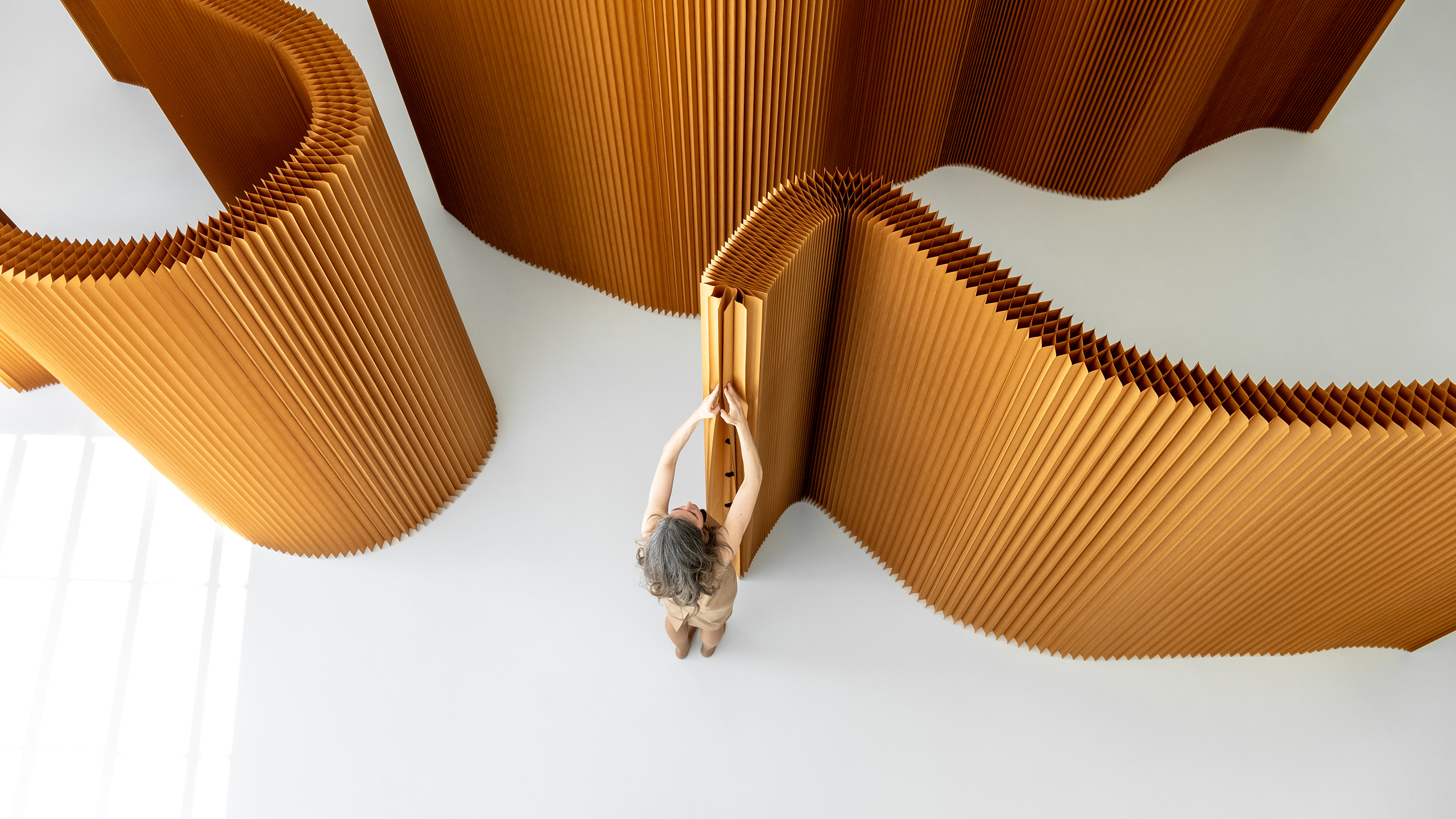
A Sustainable Starting Point
From the outset, Forsythe and MacAllen aimed to reduce the waste associated with traditional interior design and construction, which often results in demolished materials and discarded furnishings. Instead, they began developing flexible architectural elements that can change along with the spaces they inhabit. Their now iconic soft collection—comprised of sculptural walls and furniture elements that compress and expand—is made to grow and move with people’s needs.
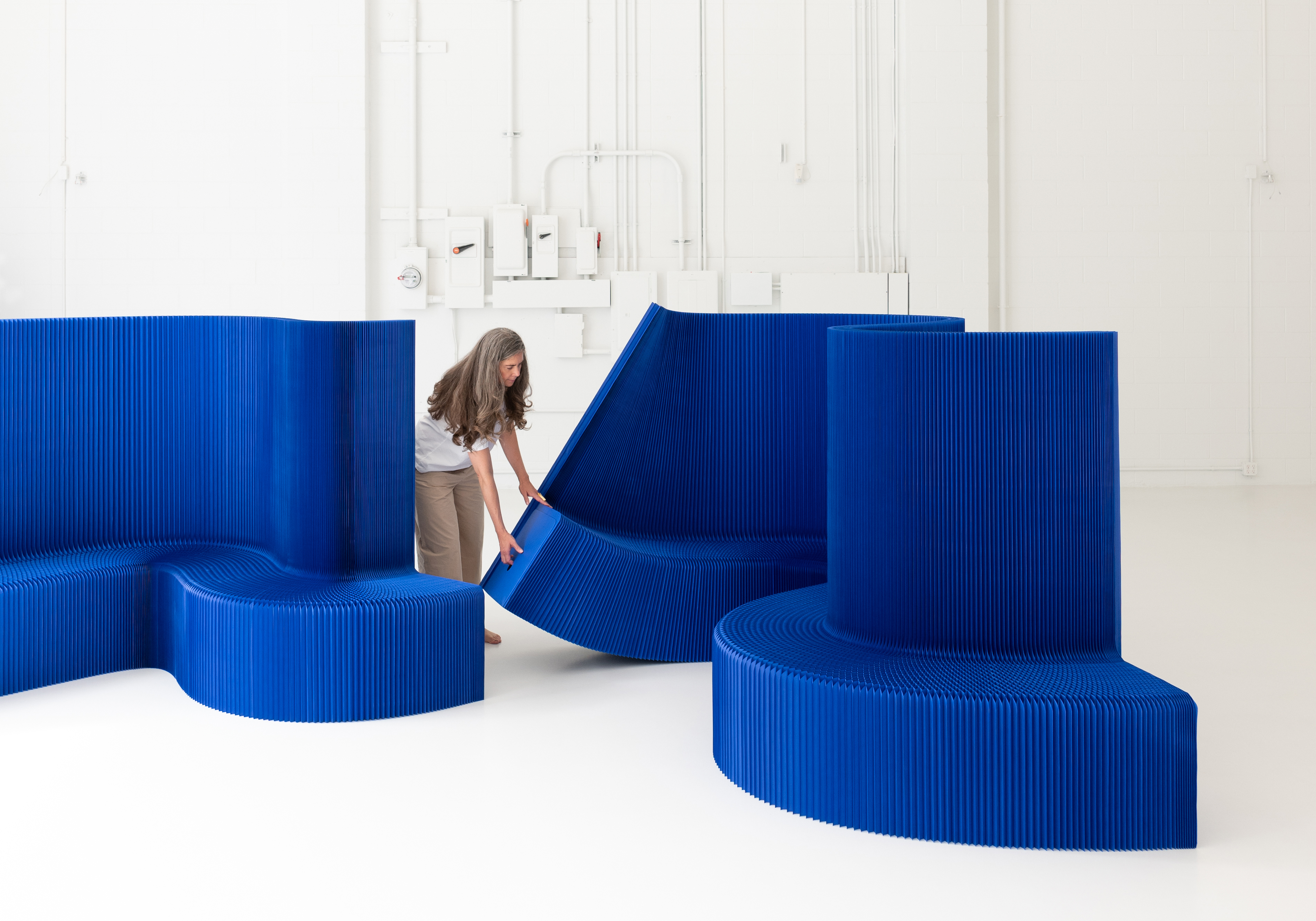
Thoughtful Use of FSC-Certified Paper
A hallmark of Forsythe and MacAllen's sustainable innovation is their use of FSC-certified kraft paper—a material too often dismissed as disposable. But their deep exploration of paper’s properties has led to remarkable results. By laminating long-grain kraft paper from slow-growing northern trees into vertical cellular structures, they have created designs that are both strong and resilient, capable of supporting and adapting to daily use in homes, offices, and public spaces.
When fully expanded, softwall consists of just 1% material and 99% air, a testament to the designers' commitment to minimal resource use without sacrificing durability or aesthetics. The paper’s sustainability credentials are elevated by its FSC certification, ensuring the material comes from responsibly managed forests that provide environmental, social, and economic benefits.
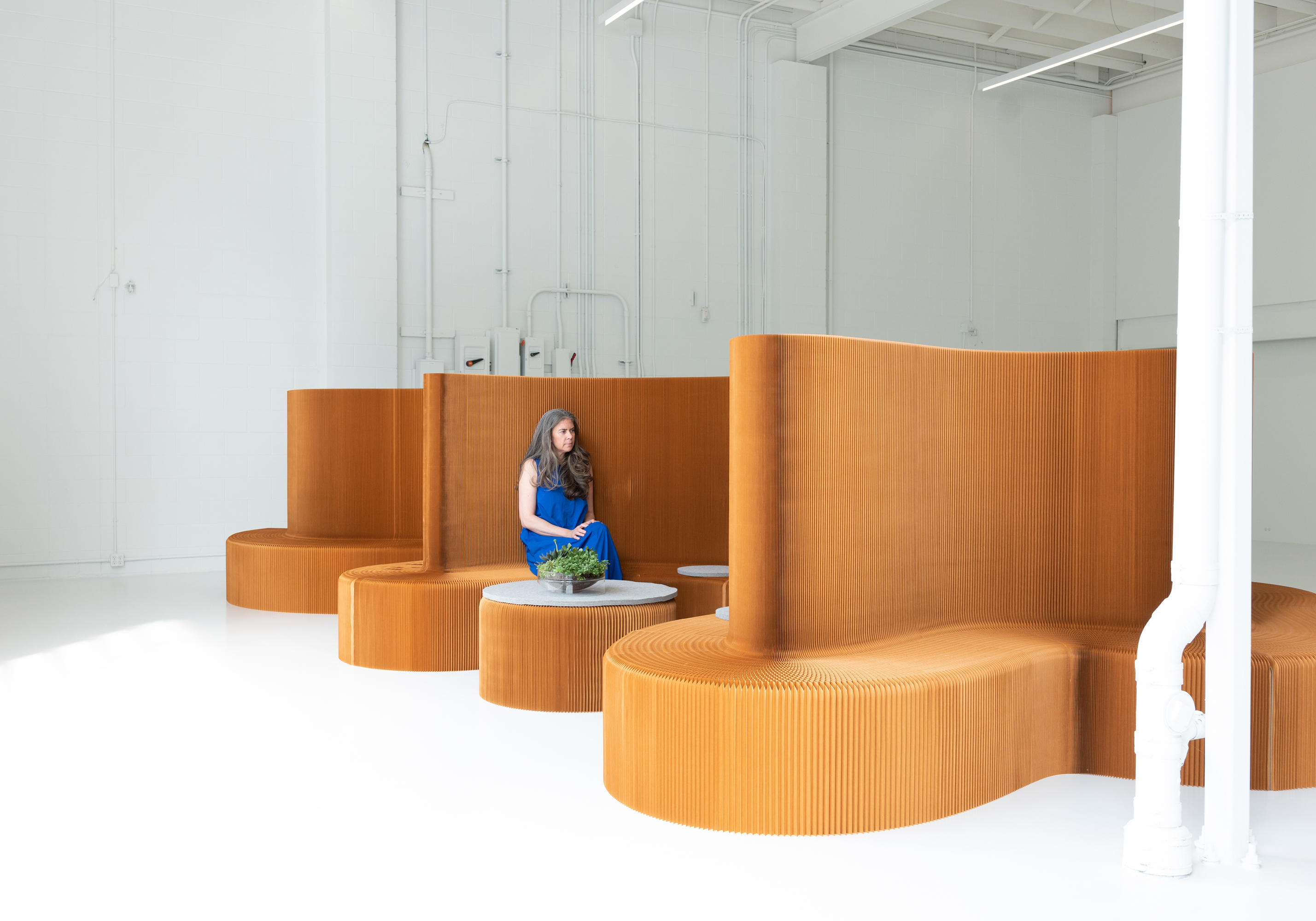
Learning from Nature
The partners often draw inspiration from the natural world, including a recent moment in the studio's bamboo garden when they observed a hummingbird weaving a nest from spider silk and lichen. This seemingly delicate, flexible architecture stretched and adapted as her chicks grew—a perfect parallel to the soft collection, which can stretch and change with human needs.
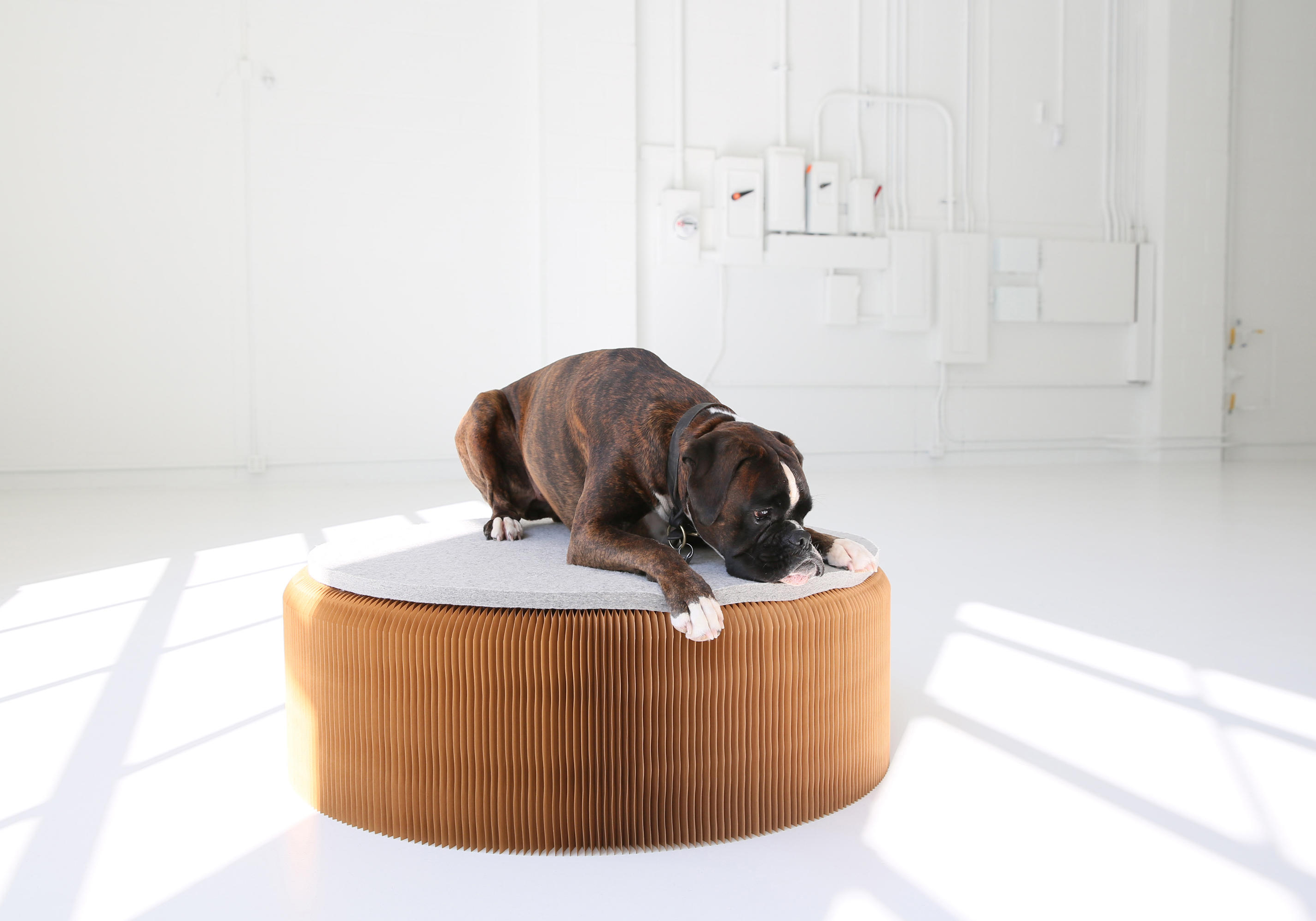
Designed to Last—and Be Loved
Rather than chasing trends or cutting corners, Forsythe and MacAllen design with longevity in mind. Their single-material approach allows for ease of recycling and disassembly, while details like curved edges at floor contact points minimize wear and tear over time. Colours and finishes are selected for lightfastness or graceful aging, adding to their products’ long-term beauty and usability.
“We strive to make design choices that elicit delight, engagement, and pride. If people love something, they’ll want to keep it—and that’s the most sustainable choice of all.” - Stephanie Forsythe and Todd MacAllen.
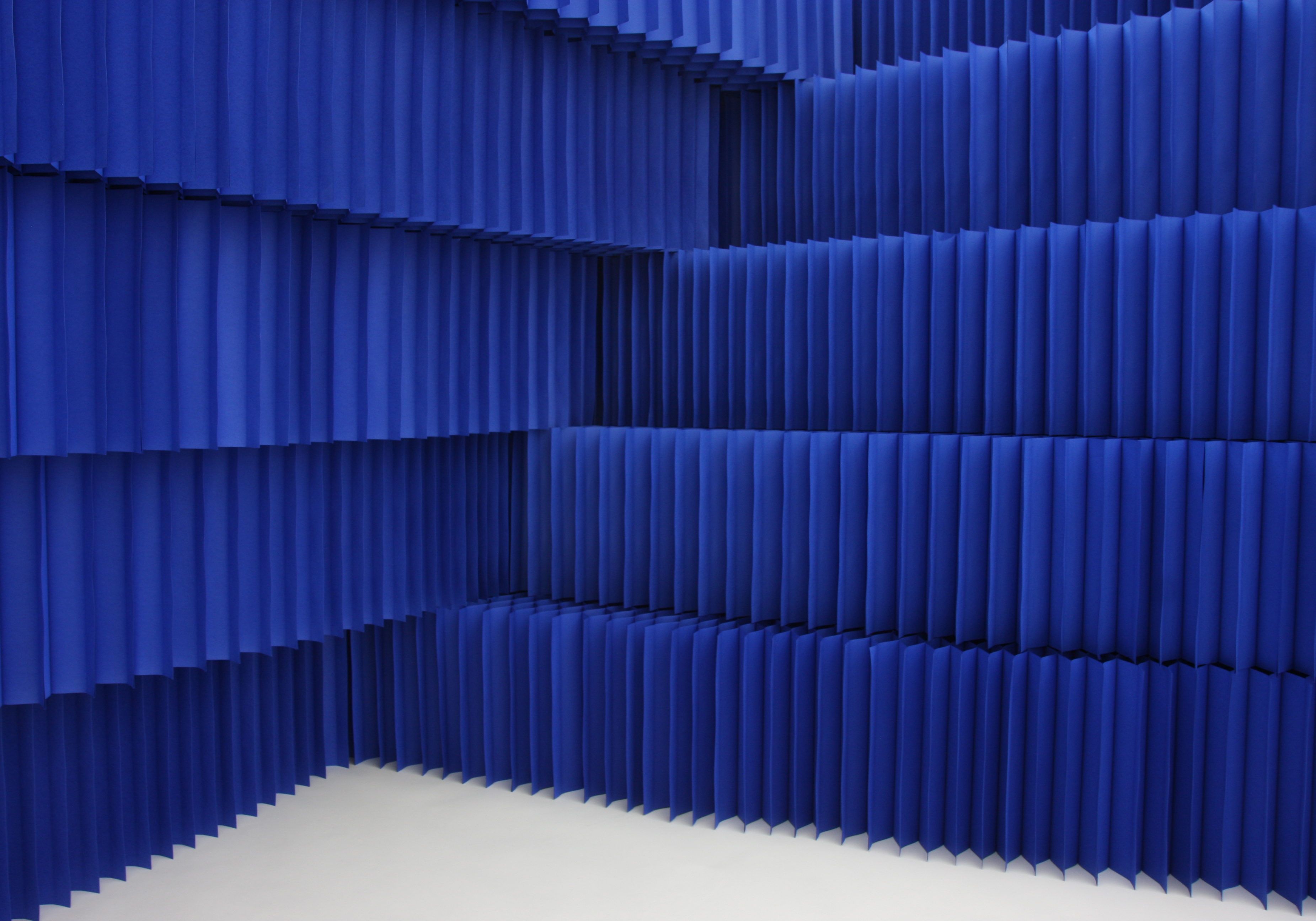
A Community of Creators
Twenty years after launching paper softwall, molo continues to inspire a community of architects, designers, and users who are building dynamic environments from FSC-certified and recyclable components. These pieces are modular, magnetic, and intuitive, inviting creativity while treading lightly on the earth.
As we look to a future that demands flexibility, molo is showing us how sustainability can be woven into the very fabric—and folds—of the spaces we live and work in.
Learn more about molo: https://molodesign.com/

